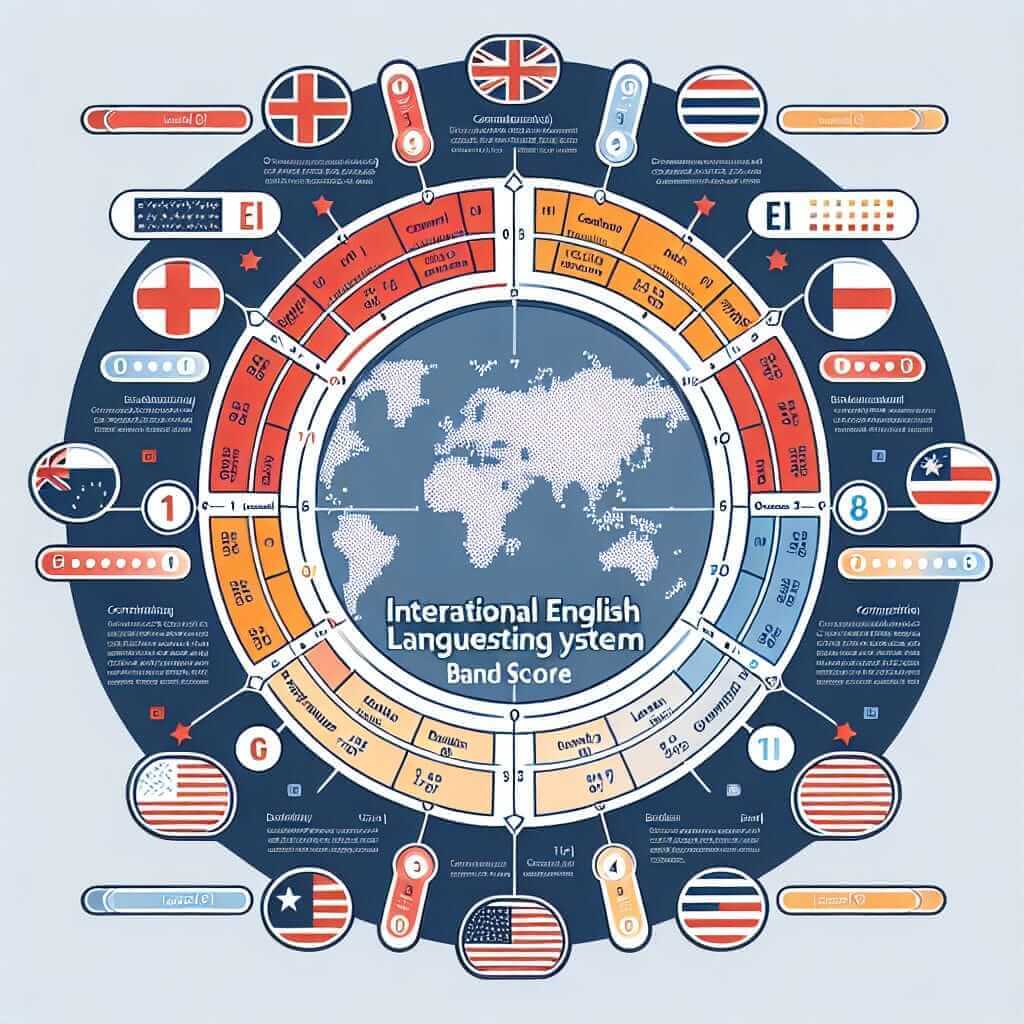As an IELTS instructor with over two decades of experience, I’ve witnessed countless students navigate the path to IELTS success. Many initially wonder, “How can I increase my IELTS score?” The truth is, there’s no magic formula, but rather a combination of effective strategies, consistent effort, and a deep understanding of the test itself. This guide, drawing on my years of expertise, will equip you with the knowledge and techniques to boost your score and achieve your desired band.
Understanding the IELTS Exam
Before delving into specific strategies, it’s crucial to grasp the IELTS exam’s structure and scoring criteria. The IELTS evaluates your English proficiency across four modules: Listening, Reading, Writing, and Speaking. Each module assesses different skills, and your overall band score reflects your average performance across all four.
IELTS Scoring System
The IELTS uses a nine-band scoring system, with nine being the highest (expert user) and one the lowest (non-user). Each band corresponds to a specific level of English proficiency. Understanding these band descriptors is essential, as they outline the specific skills and accuracy levels expected at each band.

Effective Strategies to Improve Your IELTS Score
1. Master the English Language Fundamentals
A strong foundation in English grammar, vocabulary, and pronunciation is non-negotiable.
-
Grammar: Ensure you have a firm grasp of English tenses, sentence structures, and grammatical rules. Regular practice with grammar exercises and seeking feedback on your written and spoken English can be immensely beneficial.
-
Vocabulary: Develop a broad and relevant vocabulary base. Focus on learning topic-specific vocabulary related to common IELTS themes like education, technology, and the environment. Utilize vocabulary building tools like flashcards and online resources.
-
Pronunciation: Work on your pronunciation to ensure clear and understandable speech. Pay attention to individual sounds, word stress, and intonation patterns. Listening to native English speakers and recording yourself speaking can help identify areas for improvement.
2. Familiarize Yourself with the Test Format
Knowing the test format inside out is vital for success. Familiarize yourself with the types of questions, time limits, and instructions for each module. This familiarity will reduce anxiety on test day and allow you to focus on demonstrating your language skills.
3. Practice Regularly with Authentic Materials
Consistent practice is key to improving your IELTS score. Utilize authentic IELTS practice materials, such as past papers and sample tests, to acclimate yourself to the exam’s difficulty level and question styles.
4. Develop Effective Time Management Skills
Time management is crucial in the IELTS exam, where every second counts. During practice sessions, time yourself to simulate exam conditions. Learn to pace yourself effectively, allocate sufficient time to each question, and avoid getting bogged down on any single item.
5. Seek Expert Feedback and Guidance
Feedback from experienced IELTS tutors can be invaluable. They can provide personalized guidance, identify areas for improvement, and offer strategies tailored to your individual learning style and target score.
Example: IELTS Speaking Test
Let’s examine how these strategies apply to the IELTS Speaking test:
1. Part 1: Introduction and Interview
- Be prepared to answer questions about familiar topics like hobbies, work, and family.
- Use a range of vocabulary and grammatical structures naturally.
Example Question: What do you enjoy doing in your free time?
Strong Response: “In my leisure time, I’m an avid reader, particularly drawn to historical fiction and biographies. I find immersing myself in different eras and lives incredibly enriching.”
2. Part 2: Individual Long Turn
- You’ll receive a cue card with a topic and prompts.
- Plan your response for one minute and speak for 1-2 minutes.
- Maintain coherence and fluency in your speech.
Example Topic: Describe a memorable journey you have taken.
Tips: Structure your response clearly with an introduction, body paragraphs, and conclusion. Use linking words and transition phrases to ensure smooth transitions between ideas.
3. Part 3: Two-way Discussion
- Engage in a more in-depth discussion related to the Part 2 topic.
- Express your opinions and support them with reasons and examples.
Example Question: What are the benefits of traveling to different countries?
Tips: Use a variety of discourse markers to express your viewpoint (e.g., “In my opinion,” “Furthermore,” “On the other hand”). Provide specific examples to illustrate your points.
Conclusion
Improving your IELTS score requires a multifaceted approach encompassing language proficiency, exam strategy, and consistent practice. By focusing on your weaknesses, honing your strengths, and seeking expert guidance when needed, you can confidently approach the IELTS exam and achieve your desired band score. Remember, dedication and perseverance are key. Good luck!